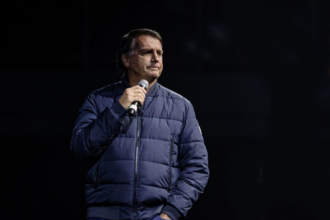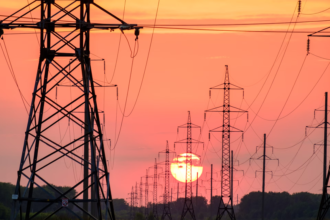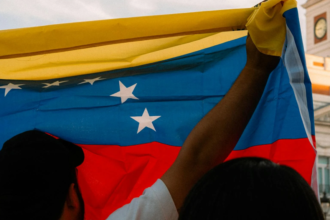It is considered one of the most active and odd seasons in recent years as the 2024 Atlantic hurricane season gets ready. Of the eighteen named tropical storms in season, eleven strengthened into hurricanes, and five were significant hurricanes— Category 3 or above.
An average season usually generates three significant hurricanes, seven hurricanes, and fourteen storms. Still, this year’s extreme weather events were not equally distributed, with an unanticipated quiet during what is often the season’s climax.
What made this season so unexpected?
Forecasts from pre-season had raised great expectations. Forecasters projected an above-average season; some described it as “extraordinary.” Early action supported this. Hurricane Beryl emerged on July 2 as the first Category 5 storm ever recorded in the Atlantic.
Before landfall in southern Texas, Beryl left a terrible path of damage over the Caribbean, resulting in several deaths. Affected Texas and Louisiana were flooded and experienced power outages, highlighting the lethal potential of storms.
Then, unexpectedly, the Atlantic went quiet.
Only four named storms developed between July and late September; none attained significant hurricane strength. This quiet time seemed perplexing, given the constant above-average sea surface temperatures necessary for hurricanes.
Why Was the Middle of the Season Silent?
The relative quiet throughout the mid-season left meteorologists looking for explanations. “The conditions seemed ready for hurricane development,” observed a NOAA climatologist. “Generally speaking, warm sea surface temperatures and the conclusion of El Niño produce an environment fit for storms. But hurricanes depend on a careful balancing act between several elements.”
One argument suggests changes in African weather patterns. Unusually uncommon rain in the Sahara generated thunderstorms, the forerunners of tropical systems, to develop much north than usual. Their likelihood of becoming hurricanes changed with this shift. Moreover, a lot of Saharan dust in the atmosphere might have prevented the formation of storms.
How did the Hurricane Season pick momentum?
The inactive part of the season came suddenly to an end on September 24 with the birth of Hurricane Helene. Within days, Helene became a strong Category 4 storm and landed on Florida’s Gulf Coast.
There was great destruction. From Florida to the southern Appalachians, Helene generated disastrous flooding and wind devastation. With nearly 150 deaths, preliminary NOAA data shows it was the worst hurricane to have struck the mainland United States since Hurricane Katrina in 2005.
An analyst remarked, “Hurricane Helene was a wake-up call.” “It made us realize how quickly things might change and the terrible power of one storm.”
Helene was simply the start of a late-season frenzy. Six storms emerged quickly, one after the other, during the next month; five became hurricanes. Four of these had fast intensification, in which consistent winds rose at least 35 mph (56km/h) within 24 hours.
What Made Hurricane Milton So Special?
Among these late-season storms, Hurricane Milton caught my attention. Developing in the Gulf of Mexico in early October, it experienced one of the most severe fast intensities ever recorded. Its wind speeds rose by an impressive 90 mph (145 km/h) within 24 hours, momentarily attaining Category 5 strength before declining to Category 3 before landfall.
Milton delivered a devastating storm surge, extreme floods, and 46 tornadoes to Florida’s west coast. Milton’s quick intensification set new standards for storm behavior, and the destruction was pervasive.
“Milton was evidence of how hurricanes are changing their face. A meteorologist remarked, “These storms are getting more intense and erratic.”
In what ways did Tropical Storm Sara leave her mark?
Tropical Storm Sara, the last named storm of the season, did not develop to hurricane status. However, it slinked slowly close to Central America and provided unheard-of precipitation. With over three feet (almost one meter) of rain reported, Honduras’s northern coast suffered most.
Which part did climate change play?
Experts cite climate change as the leading cause of the season’s extremes. Global sea temperatures were somewhat one °C above the average during 1991–2020, increasing hurricanes’ strength.
Global warming was found to have increased the maximum wind speeds of every hurricane predicted for 2024. For example, Hurricane Milton’s winds were 23 mph stronger than they would have been without human-induced climate change.
“Climate change is changing the rules,” stated a specialist on severe storms. “Warmer oceans make fast intensification events like Milton far more likely than they just fuel hurricanes.”
Moreover, studies showed that climate change caused Milton’s rainfall to be 20–30% higher.
For hurricanes, what promises to be ahead?
Scientists warn that although the global count of hurricanes is unlikely to rise, the storms we observe will intensify more quickly and carry more heavy rain.
“Every degree of warming stacks the deck,” declared a climatologist. “We are confronting more dangerous, more erratic storms for which we have less time to prepare.”
The grim message left by the end of the 2024 season is that climate change alters the Atlantic hurricane season and will significantly affect the future.








